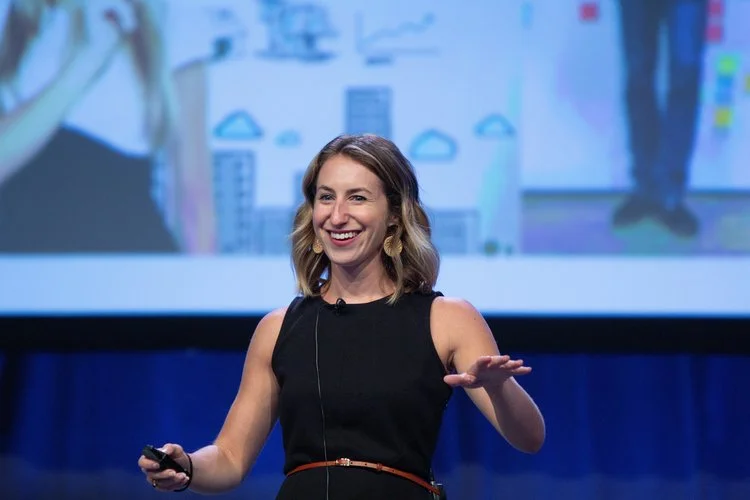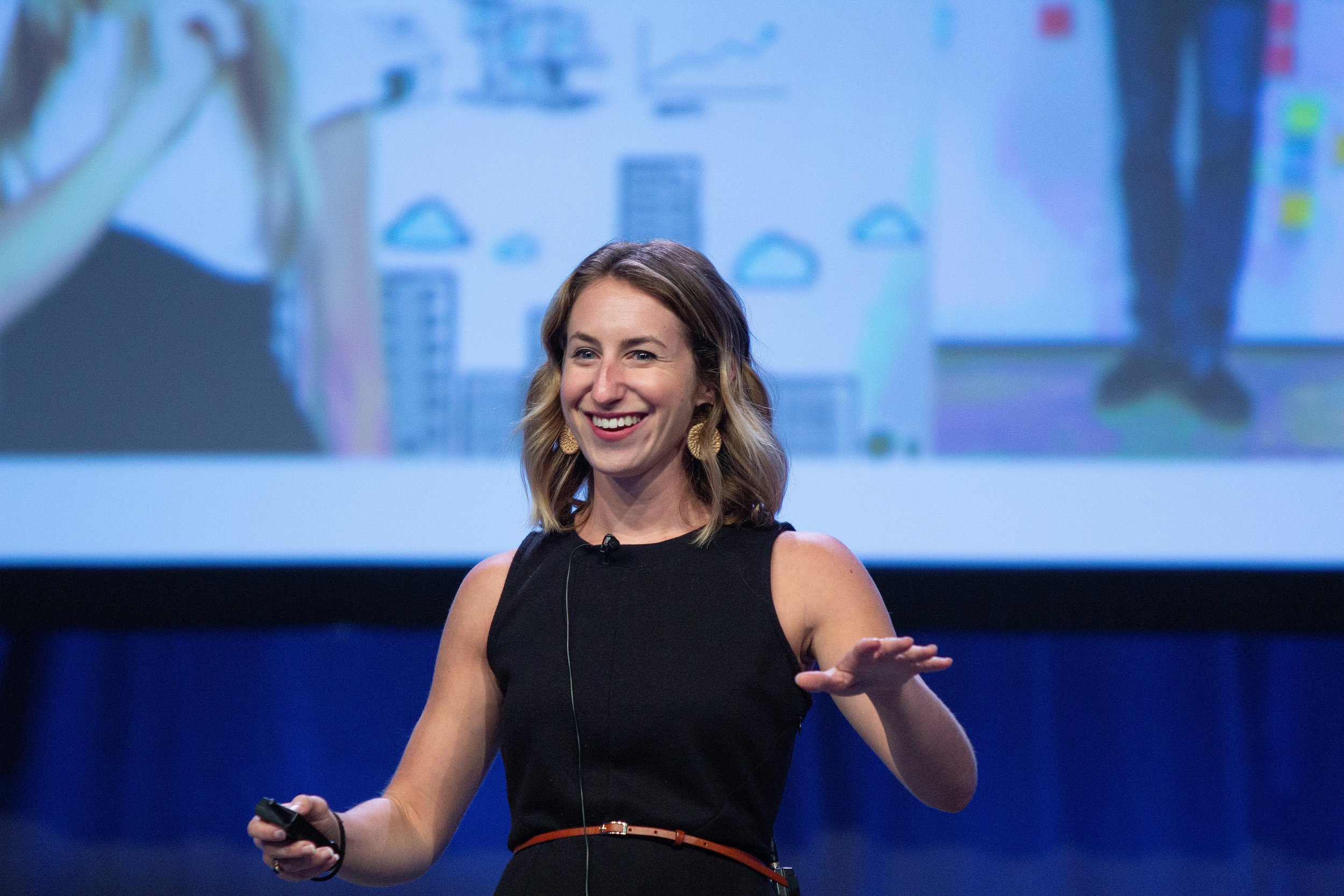Aliza Sir is the Social Entrepreneur in Residence at AARP Foundation, the country’s largest organization dedicated to issues facing Americans over the age of 50. Below she talks about her work to support entrepreneurs in the organization’s network.
What’s your role in encouraging entrepreneurship at AARP Foundation?
As a Social Entrepreneur in Residence at AARP Foundation, I design solutions for low-income 50+ Americans in pursuit of greater economic security. Ethel Percy Andrus, a retired teacher and the founder of AARP, was a powerful voice for change who advocated for “dignity and self-respect” as we age. She also said, “We must strive in all areas of life to strengthen American democracy.” Many people don’t know that innovation and economic justice has always been at the forefront of AARP.
Tell me more about AARP Foundation’s entrepreneurial work. How was the program changed over the past three years?
AARP Foundation has been around for 60 years -- which means that we have reached millions through our programs and funding, but we also need to prioritize a new wave of social innovation to keep solving problems for baby boomers and the Gen X-ers who are turning 50 today.
In 2016, AARP Foundation launched a nationwide entrepreneurship program called Work for Yourself@50+ with funding from the Hartford through a network of program affiliates. For many, entrepreneurship after age 50 feels like a necessity. People may need to generate income as they face age discrimination from employers and the value of their retirement savings may have declined or never existed.
We’re seeing a wave of “encore entrepreneurship.” And yet, before AARP Foundation stepped in with Work for Yourself@50+, there was not a voice across the entrepreneurship ecosystem ensuring that older entrepreneurs got plugged into a network of knowledge, resources, and support to help them be successful. Older entrepreneurs aren’t afraid of technology, but many of them need additional support to acquire the tech fluency so important in today’s workplace (Center for an Urban Future, 2018).
I get to experience a lot of ‘Aha!’ moments when I talk about Work for Yourself@50+ in different communities. Our biggest focus is making sure the program is accessible and sustainable in as many communities as possible through our network of program affiliates. We’ve seen how impactful just opening the entrepreneurship door to a new audience can be. What we launched three years ago was really a “proof of concept” for the Foundation, and now we’re building the relationships to take that to the next level.
Why is entrepreneurship a good option for adults over 50? Are there public policies or initiatives that encourage this option?
Diversification of income. Encore opportunities. Following your passion. Entrepreneurship is not right for everyone, especially if it requires dipping into limited savings, but it offers incredible potential to those facing age discrimination in the workplace, the need for financial security later in life, recession-era layoffs, and the list goes on.
With Work for Yourself@50+, we try to help people make an informed decision about whether or not entrepreneurship might be right for them before moving on to what that business might look like. For those that do start a business, most of them are small -- but we think it is incredibly important to celebrate those entrepreneurs. The Association of Enterprise Opportunity’s study on the power of small business finds that Main Street is a critical engine of the American economy, with small businesses in low-income communities comprising 43% of all small businesses in the United States and generating $1.87 in annual revenue.
I’ve met yoga teachers, organization experts, writers, and so many other creative and capable people coming through our program. In 2018, we estimate that Work for Yourself@50+ helped to generate more than $600,000 in new income for low-income, older adults, an average of approx. $9,000 per year for those that start or grow their business. We need stronger public policies that view older adults as an economic asset and make it financially feasible for people to leverage their experiences to work for themselves.
Do you see trends based on different geographic regions?
I think it all comes down to how many resources are available. Last year, we had the opportunity to join a coalition of organizations at Rural RISE committed to connecting the dots across rural entrepreneurship ecosystems. What is amazing about the communities we’re building at the ecosystem level is that as entrepreneurs access resources in Moorefield, WV, Farmington, NM, or another rural community, they are actually tapping into a much broader, national effort to help them be successful.
I also talk with our affiliates about how important it is to know that tracking outcomes and tracking metrics may look very different in various parts of the country. For example, two business launches in Appalachia may have a different impact on the community than two business launches in New York City.
How have you partnered with groups outside of the D.C. ecosystem?
Rural RISE was one, we also rely heavily on collaboration with organizations such as the Association of Enterprise Opportunity, National Association of Community College Entrepreneurship, Co.Starters, the Kauffman Foundation, and others to strengthen our network. Our focus on fostering entrepreneurship among low-to-moderate income older adults means that we will have a national footprint, but also target those communities with an aging population that also may be ripe for innovation. That’s a big reason why Work for Yourself@50+ serves more rural communities than most other entrepreneurship programs.
We maintain a complete list of our active program affiliates on our website, many of which are community colleges, Community Development Financial Institutions (CDFIs), Small Business Development Centers (SBDCs), and Women’s Business Centers, as well as upcoming workshops on our calendar. And we will be actively recruiting new program affiliates in 2019!
What keeps you up at night? What gets you up in the morning?
I’m really excited that we’re finally reaching the stage where we can promote and support many of the entrepreneurs that have emerged through our network. One of our founders told me recently that promotional efforts in collaboration with AARP Foundation and AARP helped to land her the opportunity to give several presentations in her local community.
How incredible would it be if AARP could prop up and promote an entire economy of 50+ founders? Of course, the logistics of what it will take to get us there keep me up at night, too.




